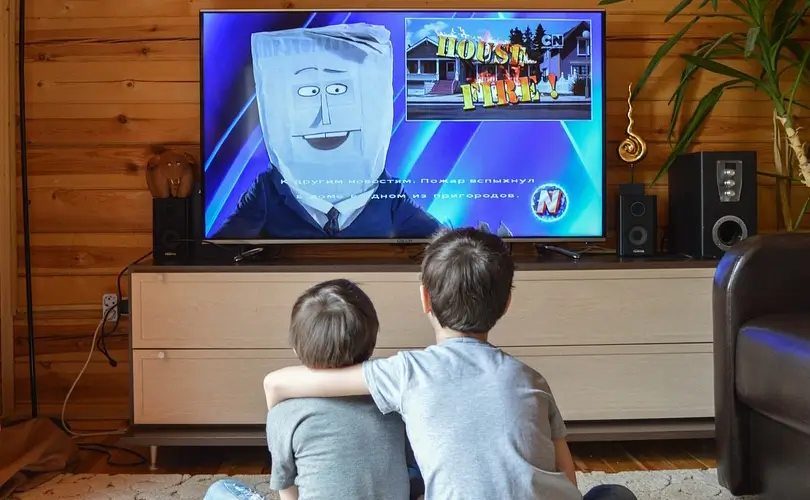Remember a few things when deciding how much screen time suits your child. First, it’s essential to strike an equilibrium between screen time’s benefits and face-to-face interaction.
As a general rule of thumb, each child should not be allowed to watch television or other screens for more than an hour per day. A child who follows a routine that restricts their screen time has a greater chance of developing a love of reading and learning.
Limiting Exposure to Electronic Media
Responsible parenting requires limiting children’s time spent in front of devices. This is because spending too much time in front of a screen can take away from other, more beneficial activities, such as face-to-face education, physical activity, and social interaction. Given the prevalence of computers in modern life, limiting how much time is spent in front of them is crucial. Follow these guidelines to help wean your kids off technology and into valuable family time.
Children who spend too much time in front of screens are more likely to be overweight, which has been linked to issues with sleep and cognitive delays.
Keeping kids away from devices for extended periods suits their health and learning. It can also restrict access to inappropriate movies and recordings for kids. In addition, using a timer built specifically for screens can make imposing limits on your children’s screen use easier.
Limiting Kids’ Computer Time
Family-based interventions, such as setting limits on their children’s screen time, can help parents decrease their children’s screen time. Guidelines published by the World Health Organization (WHO) suggest setting limits on screen time for children older than two. The American Academy made similar recommendations for Pediatrics. They recommend up to an hour of computer time for infants and toddlers under 18 months and up to two hours for kids aged 2 to 5. Parents shouldn’t limit their kids’ computer time and supervise their viewing when watching TV.
Restricting Access to TV
Parents can help set a good example for their children by imposing strict limits on how much time they spend in front of electronic media like television and the Internet. However, enforcing these restraints is a difficult task. We can sigh of relief knowing that most kids can think of creative methods to occupy their time. Here are some pointers for setting and maintaining healthy limits. The best way to limit your kid’s computer time is to keep them from giving them any, so make that your first line of defense. You will find this to be a highly successful method if your child is very young. However, involving kids of more mature ages can be difficult. So before imposing a limit, make sure they concur with it. The recommended daily maximum of screen time for toddlers is one hour.
The American Academy of Pediatrics (AAP) recommends capping children’s television and internet game time at one hour daily. To clarify, this rule does not apply to video conversations. However, parents of young children should be involved in the content selection process and sit down to watch shows with their children whenever feasible.
Video Game Restrictions
The Chinese government is worried about the rising prevalence of youth video game obsession. The state-run media has referred to video games as “spiritual opium,” referencing China’s past of widespread drug abuse and alcoholism.
Still, today, the government has made it a priority to protect children from harmful influences. According to an official government study, one in ten Chinese children suffers from internet addiction. Many facilities are now available to help with this issue. Parents may initially restrict or eliminate video games from their children’s lives. But, on the other hand, it’s best to take things slowly at first and reduce gaming time progressively.
Parents should have open conversations with their kids about the importance of screen time limits and offer concrete examples of the problems that could arise from excessive screen time.

Dominic E. is a passionate filmmaker navigating the exciting intersection of art and science. By day, he delves into the complexities of the human body as a full-time medical writer, meticulously translating intricate medical concepts into accessible and engaging narratives. By night, he explores the boundless realm of cinematic storytelling, crafting narratives that evoke emotion and challenge perspectives. Film Student and Full-time Medical Writer for ContentVendor.com




